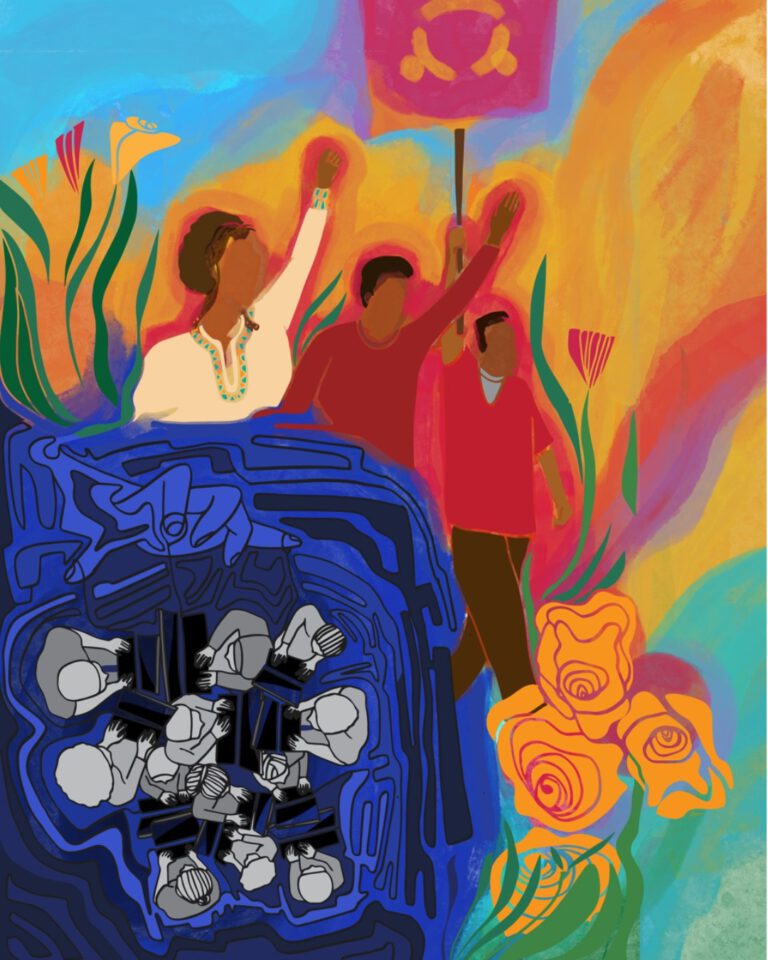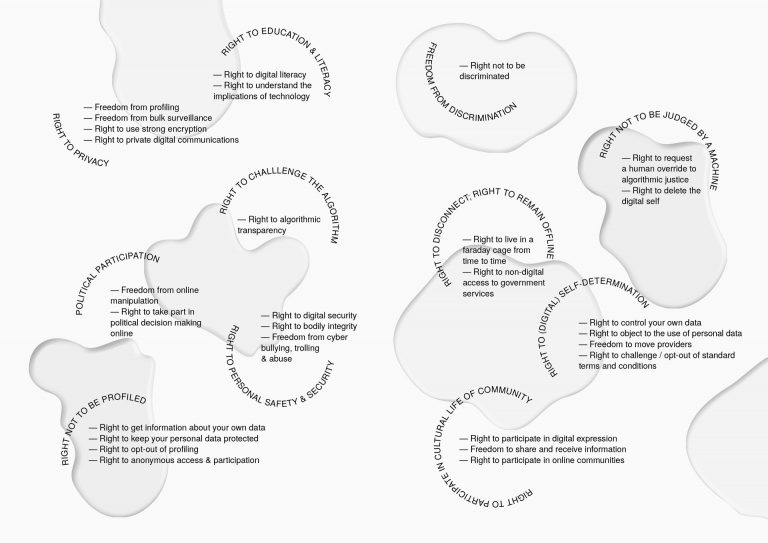The work available to African youth, particularly in Kenya, in recent years has undergone rapid and significant digitalisation. Legal and policy frameworks have not kept pace and Kenya’s new digital workers now find themselves lacking key protections.
At Siasa Place, the youth civic-tech organisation where I work, we believe decent work respects fundamental human rights as well as workers’ rights. Against the backdrop of ongoing strikes by healthcare workers demanding safe working conditions and fair pay, and on the eve of this year’s Labour Day celebrations (the theme of which, aptly, was ‘social justice and decent work for all’), we published a rapid study on the state of digital work and the attitudes of Kenyan youth.
The findings, which we summarise below, identified significant costs associated with digitalisation’s benefits. While digitalisation has improved productivity and efficiency, increased worker freedom and autonomy, and reduced capital costs for owners, at the same time, new media and emerging technologies are transforming the future of work, and ideas around employer-employee relationships, what constitutes an office or a workspace, and employment benefits.
In the absence of regulatory and legal frameworks, the consequences of these rapid changes are often borne by the workers themselves, compounding pre-existing problems. In particular, digital platforms offering jobs variously defined as digital, online, virtual and/or remote (platform jobs/work) have grown in prominence. In countries like Kenya, where an educated workforce faces chronic unemployment, the displacements of the Covid and post-Covid era combined with an economy in recession have all put significant strain on available opportunities, forcing many talented young graduates into the digital/online economy.
Faced with high unemployment and a sluggish economy, the government of Kenya has put significant emphasis on these digital and online jobs for Kenyan youth. Senior government officials have extolled the virtues of big tech and outsourcing companies (known as BPOs) operating in Kenya, encouraging the Kenyan youth to take advantage of what has come to popularly be known as the ‘Taptangelei’ economic phenomenon.¹
However, the same politicians have often been silent on the risks and perils involved in digital work. Kenya lacks clear and robust policy and regulatory frameworks for labour in the digital era; the same is true for job security and social protections. The irregular hiring and termination activities of global companies such as Facebook, Remotasks and Jumia Food highlights the vulnerability of digital workers in this emerging realm, especially those who depend primarily on digital platforms for their livelihood. Additionally, the government’s own adversarial taxation regime has sown confusion among a once thriving community of predominantly youthful content creators (for example, TikTokers and YouTubers).
In view of this context, and particularly in light of the government push for digital/online jobs, our rapid study sought to document the perspectives of urban Kenyan youth on work, digital work, employment and related opportunities across the four city counties of Nairobi, Mombasa, Kisumu and Nakuru.
Findings:
1. Respondents feel that work equals short-term income, while employment is long-term and regular, with a predictable income. They also feel that ‘work’ should have a sense of ‘purpose’ and ‘fulfilment.’
2. The majority of respondents (92%) agree that digitalisation has created more opportunities for work. However, only 39% of those interviewed admitted to having explored digital job opportunities.
3. 29% of respondents believed that digital jobs neither solve the unemployment problem, nor is there adequate information on them.
4. 54% of respondents approve of government programmes such as Ajira and Jitume which provide the training and skills needed for digital jobs. However, only 15% felt that there is adequate or sufficient information on digital jobs regarding the kind of work and training available for upskilling.
5. The majority of respondents consider online opportunities as ‘part-time’, temporary opportunities to get through economic hardship, or as a ‘landing space’ while waiting for ‘a job!’
6. Respondents are concerned about the lack of job security and social protections in digital jobs, for example, the abrupt closure of companies and/or the unprocedural termination of contracts.
Recommendations:
1. Recognition of digital work as employment: There is a pressing need to review and amend existing legislative frameworks to recognise digital work as legitimate employment and extend associated benefits and protections to digital workers.
2. Quality over quantity: From merely creating jobs, the focus must shift to ensuring that these jobs meet the minimum threshold for decent, dignified work, provide fair remuneration and job security, and opportunities for growth and fulfilment.
3. Comprehensive training and support for digital careers: Educational institutions and vocational training programs play a pivotal role in equipping youth with the skills and mindset needed to thrive in the digital age. Kenya has progressive labour protections and a digital workforce that recognises its power to leverage collective bargaining.
4. Collaborative action: Achieving meaningful progress in advancing decent work for Kenya’s youth requires collaborative action across sectors. Policymakers, legislators, digital workers, labour unions, and youth-serving organisations must work together to foster an environment in which innovation and entrepreneurship can flourish and inclusive economic growth is possible.
5. The convergence of labour, technology and human rights has created new vulnerabilities and opportunities for exploitation. Developing and enforcing new policy and regulatory frameworks will be critical in minimising the harms inflicted upon workers.
6. Deepen government efforts, accompanied by adequate, accurate information about digital jobs to empower youth to make informed choices and access necessary devices and/or equipment.
7. Review, update and enforce conditions of entry by BPOs and big tech companies into the Kenyan market, with a focus on accountability and compliance with the provisions of the Constitution of Kenya.
8. Expand the scope of digital training under existing government initiatives to include post-training support, linkages with capital, as well as access to equipment for those in need.
9. Develop well-thought out, long-term, sustainable digital skills improvement and opportunity programmes that can survive multiple political regimes.
For today’s youth and the incoming generation of digital workers, digitalisation will continue to create new opportunities while eradicating some existing ones and significantly reducing the human agency required to do others. Adaptation, upskilling and attitude change will be key to surviving and thriving in the emerging digital economy. Regulators must keep pace with this rapid change and stay up to date with emerging technologies and trends. Whether our education systems are producing people ready for the labour market must be evaluated: There are two main government training platforms, but more are needed. Young people often get into online work as a last resort: many have degrees in completely different fields and start from scratch having tried to find traditional employment. Too much of their time, talent and resources has been wasted by the time they fall into online work. By contrast, infrastructure in rural areas requires investment for access to electricity and equipment; many rural youth will not be able to work remotely or at home, but will need centres that are well equipped, available and accessible.
In the coming days, we shall commence consultations with diverse stakeholders – including youth and youth-serving organisations, as well as relevant government ministries and departments – to pursue the realisation of these recommendations.
Digital technologies, including Artificial Intelligence, are often hailed as the future. But the digital workers who make this technology possible are overlooked, frequently exploited and their work minimised as unprofessional. Kenya exemplifies the struggle faced by many African nations: its young population is desperate for opportunities which plays into the hands of global minority companies desperate for workers. In future consultations, we will redefine work on grounds which emphasise human rights and dignity, to ensure that workers have a seat at the table with policymakers and legislators. It is the apex of hypocrisy to champion technology while ignoring the plight of those who toil in its shadows.
Nerima Wako
Executive Director
Siasa Place
——————————————————————————–































































